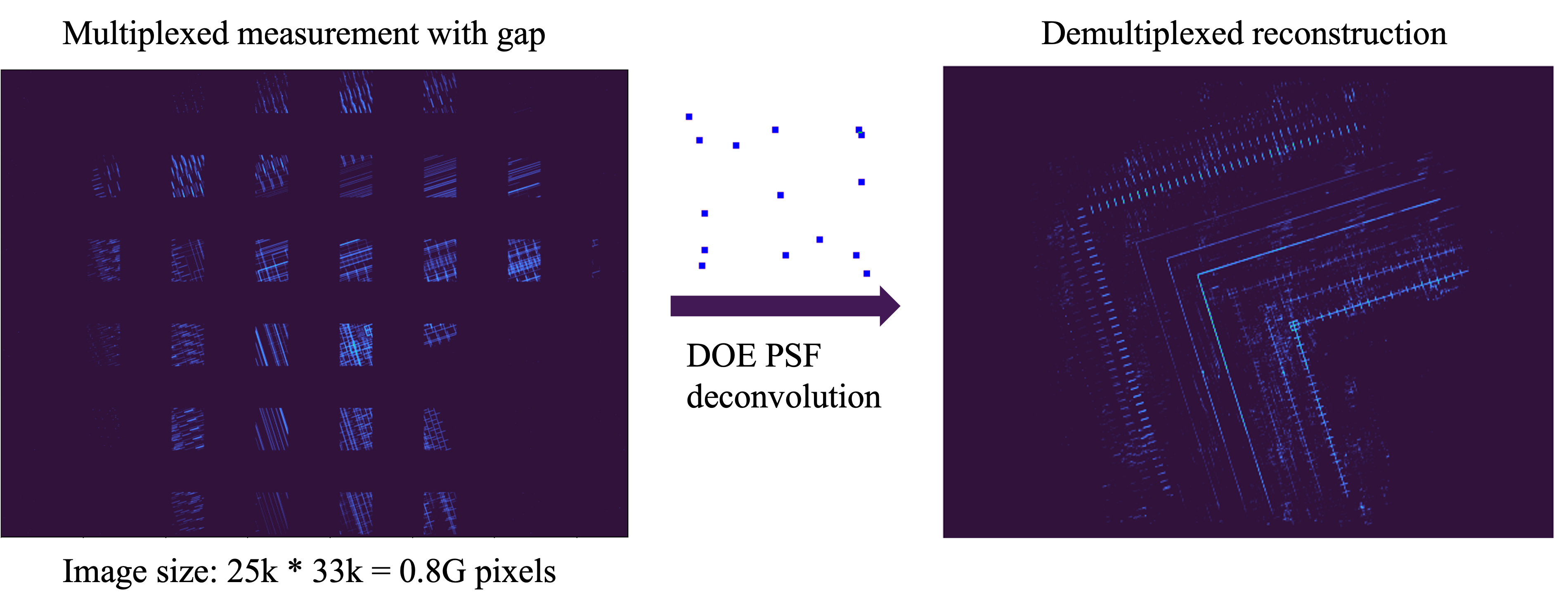About me
Hello! I am a graduate student at UC Berkeley, working with Prof. Laura Waller. I started my graduate studies in 2022 after graduating with a B.S. in Electrical Engineering from Peking University, China. My research focuses on developing and applying advanced computational imaging techniques, with expertise in signal processing, optimization algorithms, and their applications in image reconstruction and aberration characterization.
Previously, I worked on None-line-of-sight imaging with Prof. Andreas Velten. I play with signal processing in the Fourier domain a lot, and I always love combining physical hardware and computational methods to create something.
Projects
Towards Full Field-of-View Fourier Ptychography for Extreme Ultraviolet Microscope
Chaoying Gu, Antoine Islegen-Wojdyla, Markus Benk, Kenneth A. Goldberg, Laura Waller
IEEE CISA 2024 [paper]
Highlight:
- Extensively evaluated the reconstruction quality of existing algorithms under EUV microscope aberration.
- Achieved a 36-fold increase in the usable field-of-view from the nominal 5×5 μm² diffraction-limited area.

High-throughput Diffractive Multiplexing Microscopy with Sensor Array
Kevin C Zhou, Chaoying Gu, Grace Jiang, Nicholas Antipa, Roarke W Horstmeyer, Laura Waller
Photonics West 2024 [abstract & pre]
Highlight:
- Developed a computational microscope using a sensor array and a diffractive optical element (DOE) to achieve high-throughput imaging, covering a 5 cm x 6.6 cm region with ~0.6 gigapixels.
- I mainly worked on developing the patch-based memory-efficient reconstruction algorithm that involves deconvolving a diffraction pattern to fill in the sensor gaps.

Fast Non-line-of-sight Imaging with Non-planar Relay Surfaces
Chaoying Gu, Talha Sultan, Khadijeh Masumnia-Bisheh, Laura Waller, and Andreas Velten
Highlight:
- Proposed a novel computational method that effectively performs 3D diffraction propagation for arbitrary non-planar surfaces.
- Achieved orders of magnitude better complexity compared to state-of-the-art algorithms without quality degradation, validated on experimental data.

